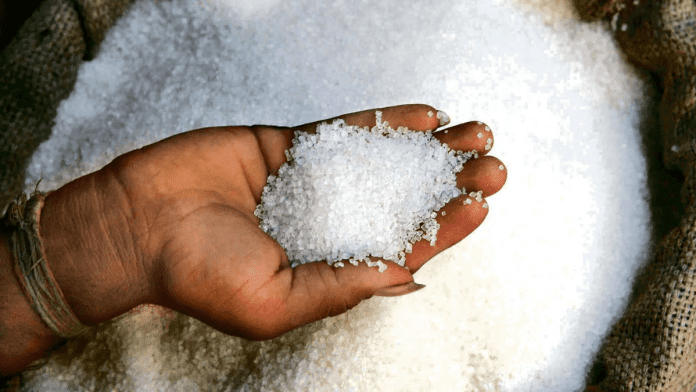News in Brief:
– Belarus has supplied 8,400 tonnes of sugar to Central Asia, emerging as an alternative to Russian sugar exports amidst concerns of supply disruptions.
– This development ensures stability in the region’s sugar market and reduces dependency on distant import sources.
Belarus has recently stepped up to fill the gap in sugar supply to Central Asian nations, delivering 8,400 tonnes of sugar since early April, according to a news report. This surge comes amidst concerns over potential restrictions on Russian sugar exports, marking a shift in the region’s sugar trade dynamics.
The recent decline in Russian sugar exports had raised alarms across Central Asia, prompting countries to seek alternative sources. Belarus, with its growing sugar production capacity, has swiftly emerged as a viable option. March witnessed a substantial drop in Russian sugar exports, further fueling speculation about potential supply disruptions.
Stability amidst uncertainty
Uzbekistan, a key player in the region’s sugar market, has been proactive in addressing the looming supply constraints. Despite the uncertainty surrounding Russian exports, Uzbekistan remains confident in its domestic production capabilities. The country’s Ministry of Agriculture reassures stakeholders that any potential disruptions will not jeopardise sugar availability.
The resilience of Uzbekistan’s sugar industry lies in its robust domestic production infrastructure. Local enterprises like Angren Shakar and Xorazm Shakar play a pivotal role in meeting domestic demand, ensuring stability even in the face of international market fluctuations. With a daily sugar output of approximately 2,100 tonnes, these facilities contribute significantly to Uzbekistan’s self-sufficiency in sugar production.
Reducing dependency
Uzbekistan’s reliance on Brazilian and Indian sugar imports underscores the importance of diversifying its supply chain. While these imports have historically met the bulk of the country’s sugar demand, recent developments highlight the need for greater self-sufficiency and regional cooperation. Belarus’s emergence as a reliable sugar supplier offers a promising avenue for reducing dependency on distant markets.
As Central Asian nations navigate shifting dynamics in the sugar trade landscape, strategic partnerships and diversified supply chains will be essential for ensuring food security and economic stability. Belarus’s role as an alternative sugar supplier not only addresses immediate concerns but also opens up opportunities for greater regional collaboration in the agri-food sector.



